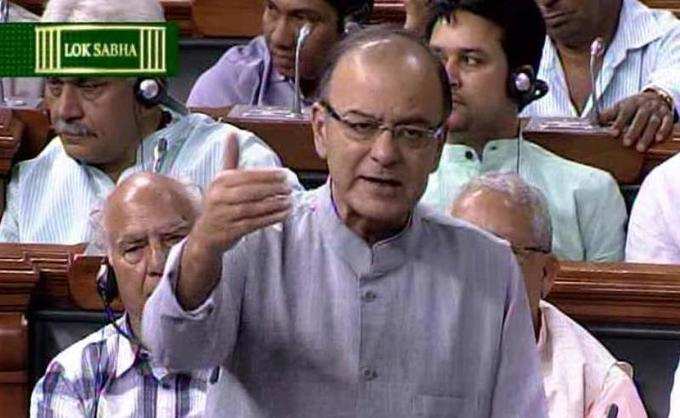 In a big move in the Parliament today, the Lok Sab has finally passed the
In a big move in the Parliament today, the Lok Sab has finally passed the This constitutional bill will now have to be passed with a two-third majority in the upper house of the Parliament, the
The GST Bill has a long winding road to getting passed. In fact, once passed, this constitutional bill will need to be passed by 50% of the 29 States in their respective Assemblies. Once done, atleast 3 other bills, will need to get passed in the Parliament, even before the actual GST Bill is tabled.
That clearly doesn’t leave the Government too much time, since there will be only 3 more sessions of the Parliament before the April 2016 deadline, the Monsoon Session in 2015, the 2015 Winter Session and then, finally, the Budget Session in February 2016, when the GST Bill will have to be tabled and passed for it to come into operation by April.
But the
Earlier in the day, while tabling the Constitutional Bill in the
Addressing the Lok Sabha, FM Jaitley said, "The whole country will become a seamless market. Goods will move seamlessly between states." "The entire GST process has taken over 12 years. GST will bring in uniformity in taxation across the country," Jaitley stressed.
Calling GST a destination tax, Jaitley said, "There will be no tax on tax. It will reduce prices in the long run and boost economic growth," Jaitley pitched. Slamming Opposition for its stand on GST Bill, Jaitley said, "A bill is not a dancing instrument that it will jump from one standing committee to another."
Congress floor leaders Ghulam Nabi Azad and Anand Sharma met Rajya Sabha Chairman Hamid Ansari and parliamentary affairs minister Venkaiah Naidu on Tuesday and insisted that the party wanted the goods and services tax bill to be sent to the select committee of the House. This demand was made on a day when the government went ahead with the Constitution amendment bill in the Lok Sabha by rejecting the Opposition demand for it to be referred to a standing committee.